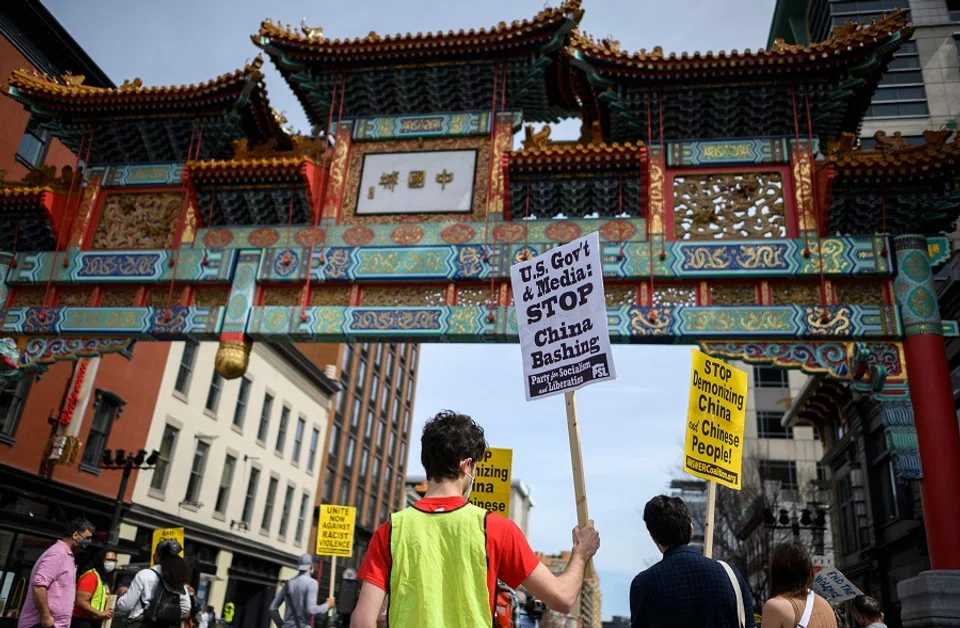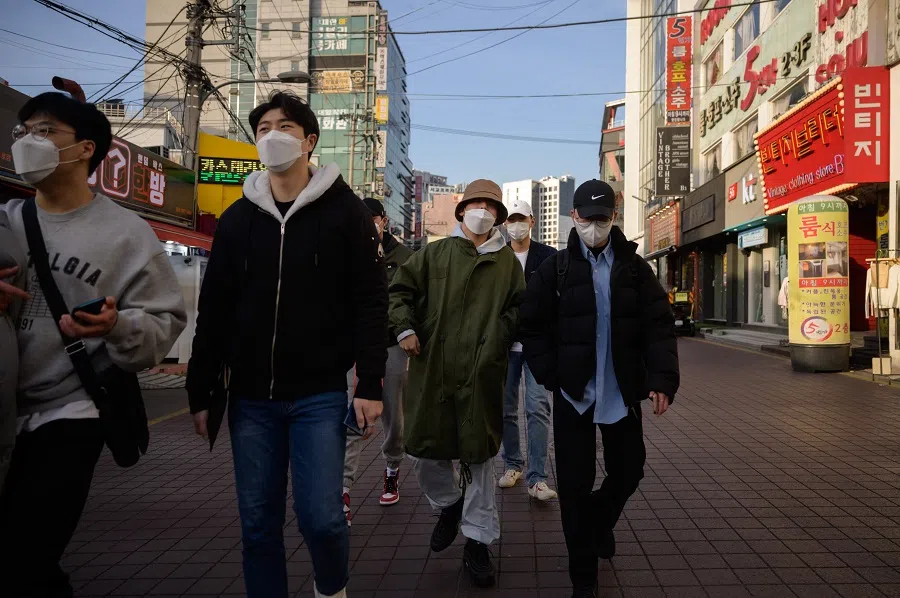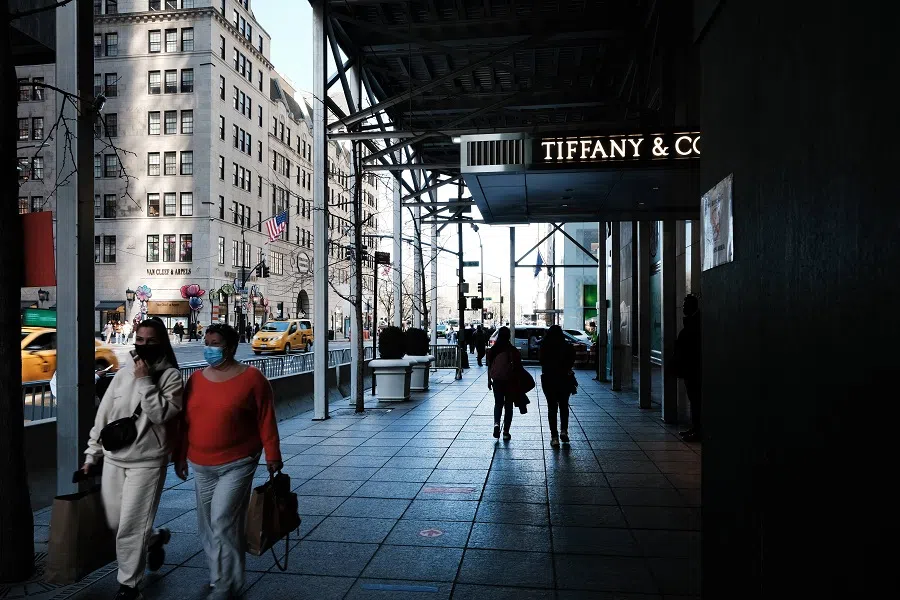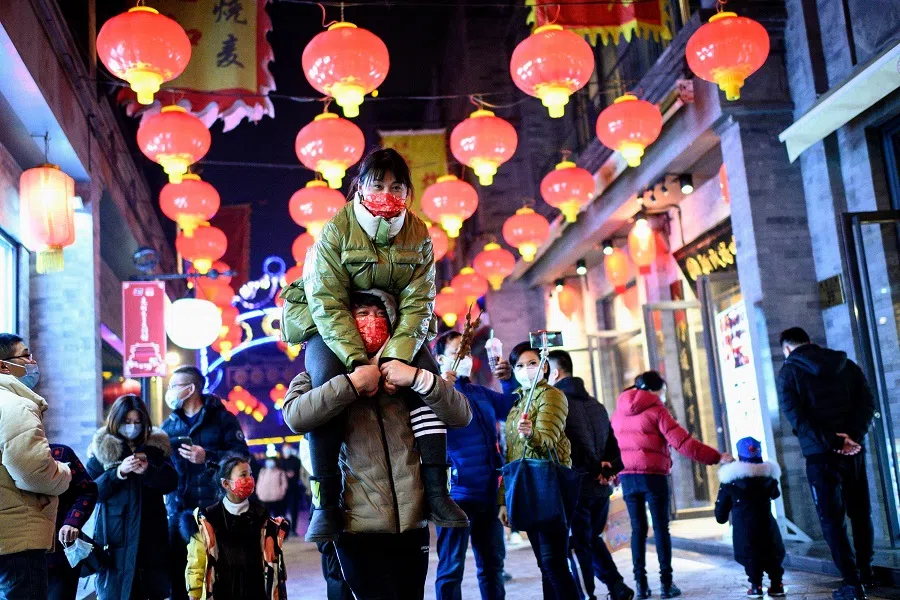Why the Chinese people are invisible in US media
Little interaction with Chinese people and double standards in US news reports have led to Americans having a jaundiced view of China. Immersed in stories on foreign policy, politics or human rights, they rarely have the chance to realise that the Chinese are made up of individuals and families who are living their lives the best way they can, just like the average American. Better education through the media and universities is greatly needed.

According to a closely watched Pew Research Center survey on US views of Asia-Pacific nations, American attitudes towards China have turned cold in the last few years. In the latest edition of the survey, 67% of Americans felt "cold" towards China, while a whopping 89% of adults consider China an enemy or competitor. As the data does not explain the underlying reasons for this trend, the non-partisan Pew Research Center conducted another qualitative survey on 2,010 respondents.
The survey showed that negative views of China stemmed first and foremost from human rights issues. The second source of concern was the economy, including the influx of "Made in China" products and what some view as "bad products" or "knockoffs". Third, was China's political system, and fourth, was the perceived threat that China poses. Fifth on the list was China-US relations, with some respondents highlighting the economic relations between both countries and the harm that China could do to the US economy. Clearly, this view is extremely different from China's claim that the Chinese and US economies are complementary and mutually beneficial.
Two recent personal experiences
Apart from quoting the official findings of the surveys, I would also like to share some reflections on a few personal experiences. In March this year, I went to a local hospital for a check-up. I met a hospital staff in her sixties at the registration office. As we engaged in small talk, she asked if I came from mainland China and honestly expressed her confusion and dissatisfaction with China today. She first expressed her deep admiration for the Chinese civilisation and her familiarity with Pearl S. Buck's novels. She said that she knew a local retired Hong Kong piano professor well, and had heard a lot about the Cultural Revolution from him. She wanted to know why China insisted on destroying the good parts of Chinese and Western civilisations. Her anger was palpable through her questions.
I could only briefly explain that China had a traumatic modern history that may be difficult for Americans to understand, and that modern-day Chinese do feel that they have been "mistreated" by the West and are full of "grievances". The Cultural Revolution may be a painful tragedy, but even amid the revolutionary art and literature that dominated the Cultural Revolution period, symphonies and musical instruments like the piano were not obliterated.
When I thought about this incident again later on, I felt that while she was a typical American genuinely trying to understand China, there would still be limitations to that understanding. Her reference point was Pearl S. Buck's description of Chinese villages in the early 20th century (from Buck's novel The Good Earth and the film under the same name that Americans are most familiar with) and the faded memories of a Chinese acquaintance who lived through a special era. Also, the continued influence of American media is not to be neglected as well.

Another example was an incident that happened on 5 April. A Korean American policeman on duty in a government building told me that while he has never been to South Korea or China, the first thing that comes to mind when he thinks about China is that it is a massive place. Next, he thinks that Chinese society places more "restrictions" on people than Korean society. In response to these, I explained that China's population and market are much larger than South Korea's and that there are a lot of business opportunities there and room to grow. Many young people have gone on to achieve success in business and technology. My response was certainly not perfect, but I believe it went some way towards correcting the hazy or distorted views that ordinary people have about China.
On the automated news feed provided by Microsoft Edge, reports on China from various media repeatedly used the words "attack", "invade", "threats", "frictions", "tensions" and so on.
How China and the US are painted in American media
To most people, information sources are very important. Assuming that the American public only relies on mainstream US media to understand China, even putting aside TV stations with clear political affiliations that routinely attack China, it is difficult for people to see any positive side of China even from reports by the relatively objective The New York Times.
I subscribed to The New York Times and collected keywords from their reports on China in the past two months: atrocities, genocide, sanction, challenge, arrest, protest, contest, anger, fear, complain, anxiety, conflict, confrontation, control, suppress, coercion, setbacks, skittish, jittery, tragedy, theft, tension... On the automated news feed provided by Microsoft Edge, reports on China from various media repeatedly used the words "attack", "invade", "threats", "frictions", "tensions" and so on.
These keywords show that reports on China are focused on foreign policy, politics and negative news. In a recent report on vaccination, measures adopted by the Chinese government to encourage citizens to get vaccinated were described as "tantalising" and "threatening" tactics. One can imagine what impact reading such reports over time would have on how China is perceived by Americans and overseas Chinese. It is true that negative news reports reflect America's negative view of China. But an onslaught of negative reports over time also fosters such cold views towards China.

Some say that Western news is characterised by a love for reporting negative news and telling exaggerated "man bites dog" stories. But this is not the whole truth. Professor Zhao Dingxin, a renowned Chinese sociologist at the University of Chicago, once observed that when certain domestic institutional problems are highlighted in the news, the Chinese media tends to get to the bottom of the matter, while American media would briefly mention it and self-censor. I have also observed that the American media enjoys adding positivity to domestic news rather than simply exposing faults and making attacks.
... domestic news in the US focuses on the positives and the celebration of heroes as it wants to give readers a sense of hope, because this is also the social responsibility of news organisations.
After closely reading a recent local newspaper, I discovered that while the headlines of an Associated Press report on the pandemic situation in the US highlighted the impact of a "hunger crisis" on children and older adults, it also mentioned in great detail how relevant non-governmental organisations have raised "over US$1.675 billion in emergency funding" for nutrition programmes under the Older Americans Act "to pay for food, gas and drivers to deliver meals, along with masks, gloves and sanitiser to protect staff". When interviewed by the news agency, a beneficiary of the programme said, "I'm very thankful for these meals. It makes a big difference in your life, you know."
In another Associated Press report on the attack of an Asian American woman, the reporter mentioned that "a person not seen on surveillance video [had] helped the woman by screaming to distract her assailant". The report also said that the victim's family was deeply grateful to the bystander for stepping in. These two reports show that in practice, domestic news in the US focuses on the positives and the celebration of heroes as it wants to give readers a sense of hope, because this is also the social responsibility of news organisations.
However, focusing on the positives and the attitudes of the general public is rarely applied to US reports on China, which are generally highly political, confrontational and tense. Thus, in the follow-up survey conducted by the Pew Research Center, researchers ultimately found that Americans' understanding of China through the media is extremely limited: "Americans rarely brought up the Chinese people or the country's long history and culture in their responses. Instead, they focused primarily on the Chinese government - including its policies or how it behaves internationally - as well as its economy."
According to an older-generation Chinese American who was born in the US, speaks English as his native language, graduated from the business school of Yale University, and is currently in the senior management team of a company in Hong Kong, American reporters are open to writing positive reports about China, but the news organisations they belong to have banned them from doing so.
They would not think that the Chinese are also made up of individuals and families who are also living their lives, being grateful and helping one another during difficult times, just like the Americans.

Double standards in US news reports - positive and human interest stories on domestic issues focusing on the experiences and emotions of the American people on one hand, and negative reports on China with a focus on the government and its intentions, as well as extensive use of negative words on the other - would certainly result in Americans not being aware of the existence of Chinese "people" when answering survey questions such as the above. They would not think that the Chinese are also made up of individuals and families who are also living their lives, being grateful and helping one another during difficult times, just like the Americans.
A different narrative
While the investigative and critical nature of news reporting is essential, I believe that the American public will only be able to form a more comprehensive view of China when the US media uses the same positive and human interest narrative approach when writing about China and if they produce kinder, less politicised reports that have people and society at their heart. This will also help to dispel the notion among the Chinese that the Americans are out to "demonise" China, leading to great distrust of the US.
In this respect, documentary makers in the US such as Sue Williams should be commended for their efforts in providing in-depth and objective portrayals of China, whether in terms of its modern history, current realities, or the feelings, dreams and aspirations of the Chinese from different walks of life. Williams' documentaries "China: A Century of Revolution" and "Young and Restless in China" have shed light on China's revolutionary history and the daily lives of ordinary people in the early 21st century through extensive interviews. But the problem is, the social impact of these high-quality documentaries with longer production cycles and a smaller reach are minuscule compared to the daily reports on television, in the newspapers and on the internet.
At the same time, university-level liberal arts education that focuses on in-depth knowledge, balanced viewpoints, diverse perspectives, and historical contexts also has a significant impact on changing the worldview of Americans. This is supported by the Pew Research Center survey on US views of Asia-Pacific nations which found that people "with at least a bachelor's degree are less likely to feel very cold toward China than those with less education".


![[Big read] When the Arctic opens, what happens to Singapore?](https://cassette.sphdigital.com.sg/image/thinkchina/da65edebca34645c711c55e83e9877109b3c53847ebb1305573974651df1d13a)


![[Video] George Yeo: America’s deep pain — and why China won’t colonise](https://cassette.sphdigital.com.sg/image/thinkchina/15083e45d96c12390bdea6af2daf19fd9fcd875aa44a0f92796f34e3dad561cc)